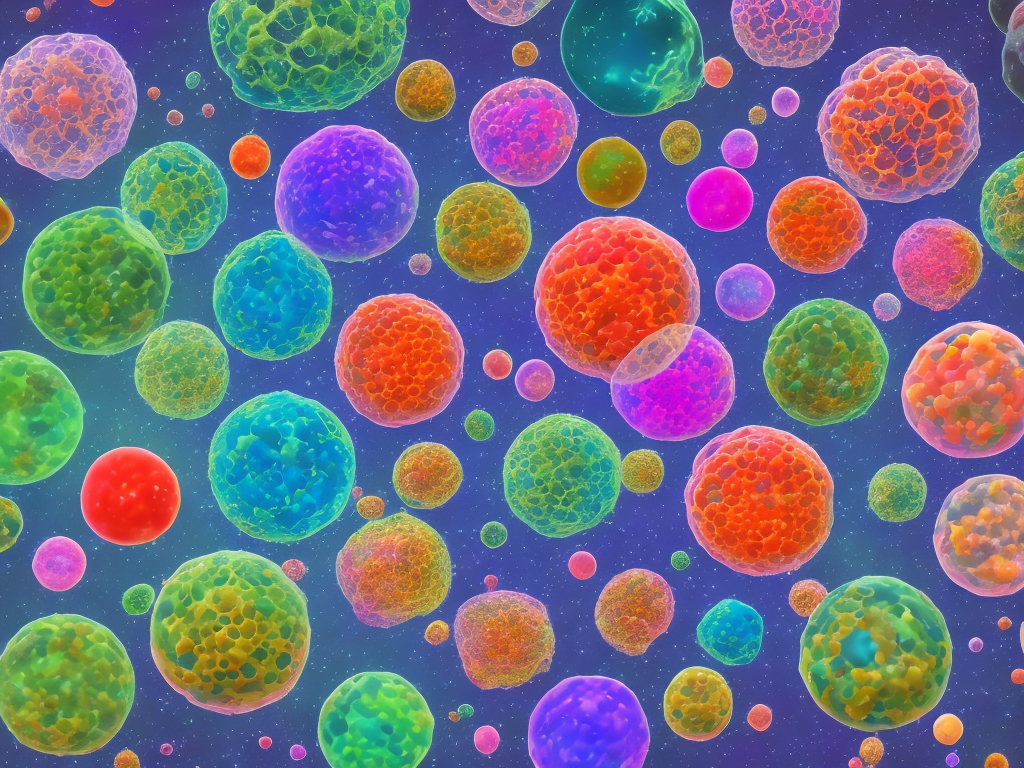
Living organisms can be classified into two categories: unicellular and multicellular. While both of these types of organisms are considered to be living beings, there are many differences between the two that set them apart. This article will explore the differences between unicellular and multicellular organisms.
Unicellular organisms are those that are made up of a single cell. This means that every function of the organism, from reproduction to digestion, is carried out by one single cell. Some common examples of unicellular organisms include bacteria, yeast, and amoeba.
Multicellular organisms, on the other hand, are made up of many different cells, each of which has a specific role or function within the organism. Humans, animals, and plants are all examples of multicellular organisms. These organisms have a far more complex structure than unicellular organisms, and their abilities and functions are far more diverse.
One of the most significant differences between unicellular and multicellular organisms is their size. Unicellular organisms are usually microscopic and can only be seen with a microscope. Multicellular organisms, however, can range in size from very small, such as a single cell in the human body, to extremely massive, such as a blue whale, which can weigh over 150 tons.
Another important difference between unicellular and multicellular organisms is their complexity. Unicellular organisms are relatively simple in their structure, with most of them having only one type of cell. These cells carry out all the functions that the organism needs to survive. In contrast, multicellular organisms are much more complex, with many different types of cells, organs, and systems working together to maintain the overall health and functioning of the organism.
One of the most significant advantages of being a multicellular organism is the ability to specialize and differentiate cells. This means that certain cells in multicellular organisms are designed for specific functions, such as muscle cells, skin cells, or nerve cells. By specializing in this way, multicellular organisms are able to perform more complex tasks and functions that unicellular organisms cannot.
Another critical difference between unicellular and multicellular organisms is their ability to reproduce. Unicellular organisms reproduce through a process called asexual reproduction, where one cell divides into two identical daughter cells. Multicellular organisms, on the other hand, reproduce through sexual reproduction, where the genetic material from two different individuals is combined to produce offspring with unique genetic pedigrees.
One of the other essential differences between unicellular and multicellular organisms is the speed at which they grow and develop. Unicellular organisms grow and reproduce quickly, with some being able to reproduce every few hours under the right conditions. Multicellular organisms, however, grow and develop much more slowly, taking months or even years to reach their full size and maturity.
Finally, one of the crucial differences between unicellular and multicellular organisms is their ability to adapt to different environments. Unicellular organisms are incredibly adaptable and can survive in a vast range of conditions, from extreme heat and cold to high levels of acidity or alkalinity. Multicellular organisms, on the other hand, are more specialized and require specific environmental conditions to survive and thrive.
In conclusion, unicellular and multicellular organisms are two distinct types of living organisms that differ in size, complexity, specialization, reproduction, growth and development, and adaptability. While both kinds of organisms are vital to the balance of our ecosystem, it is essential to understand the differences between them to appreciate their unique contributions to the world around us. Whether we are observing a colony of bacteria or a mighty elephant, each organism has its own unique place in the grand scheme of life.
 Self-Instruct
Self-Instruct